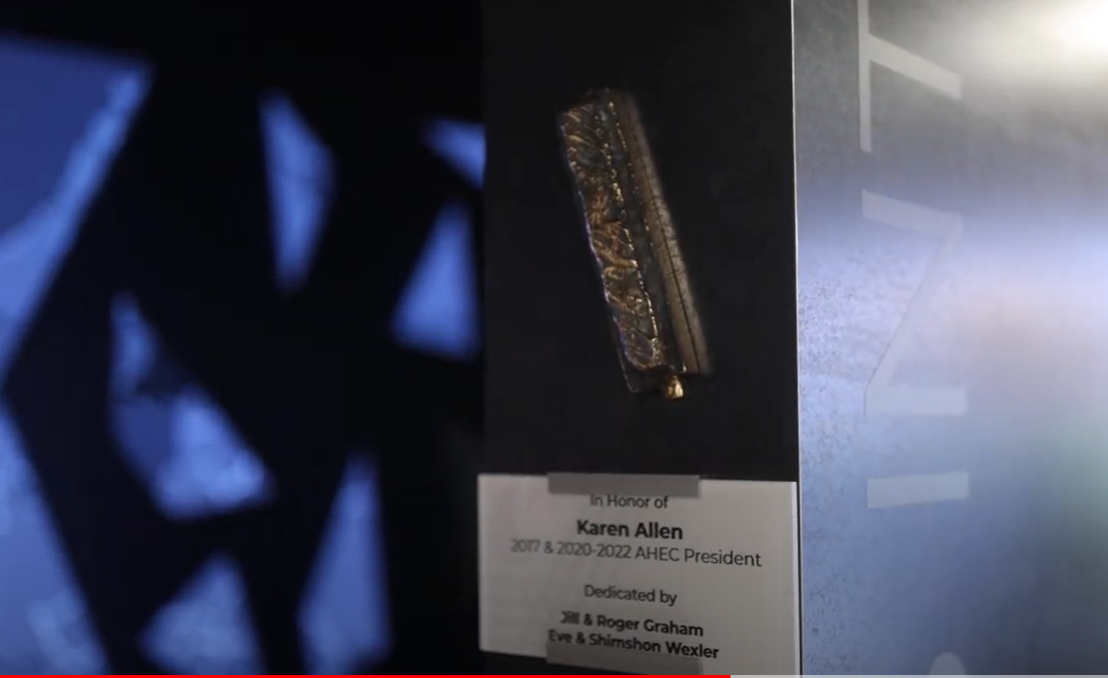In a remarkable twist of fate, Birmingham’s Ronne Hess embarked on a mission to find meaningful artifacts for the forthcoming Alabama Holocaust Education Center. Little did she know that her search would lead to a poignant connection spanning 900 miles and multiple generations.

Ronne, an energetic 72-year-old volunteer, sought mezuzahs, prayer enclosures traditionally hung on Jewish door frames, to adorn the Center’s entrance. Rather than settling for ordinary pieces, she stumbled upon something extraordinary.
In 2021, she called the Weitzman National Museum of American Jewish History on a whim and met the museum’s longtime store curator, Kristen Kreider.
Ronne, says it was “Bashert,” the Yiddish word for ‘meant to be.’
Kristen suggested Mi Polin, a Polish company whose unique mezuzahs are cast from the imprints left when Nazis or their collaborators removed the original ones from the doorposts of Polish Jewish homes during World War II. Over the year, they worked with Mi Polin to find 13 mezuzahs cast from doorposts representing the hometowns of some of Alabama’s Holocaust survivors.
Each mezuzah represents the hometown of an Alabama Holocaust survivor. This tangible connection to their roots adds depth and significance to the Center’s exhibits, ensuring the stories of resilience and survival are preserved for future generations.
In April, the Center hosted the “Blessing the Building” ceremony, where the mezuzahs were hung. This symbolic act of consecrating the space was followed by a dedication ceremony on May 22, graced by Alabama Governor Kay Ivey and Birmingham Mayor Randall Woodfin.
The installation of these mezuzahs not only honors the survivors but also serves as a testament to the strength of the human spirit and the power of remembrance. Visitors to the Alabama Holocaust Education Center will be profoundly moved by this tangible recognition of the past, fostering a deeper understanding of the Holocaust’s impact on individuals and communities.
As the mezuzahs find their rightful place on the Center’s doorposts, they carry the hopes, prayers, and stories of those who endured unimaginable horrors. Their presence symbolizes a commitment to never forget, to educate future generations, and to strive for a world where such atrocities are never repeated.
In this merging of history, artistry, and resilience, the Alabama Holocaust Education Center stands as a beacon of remembrance and hope—a place where the past speaks to the present and guides us toward a future rooted in compassion and understanding.